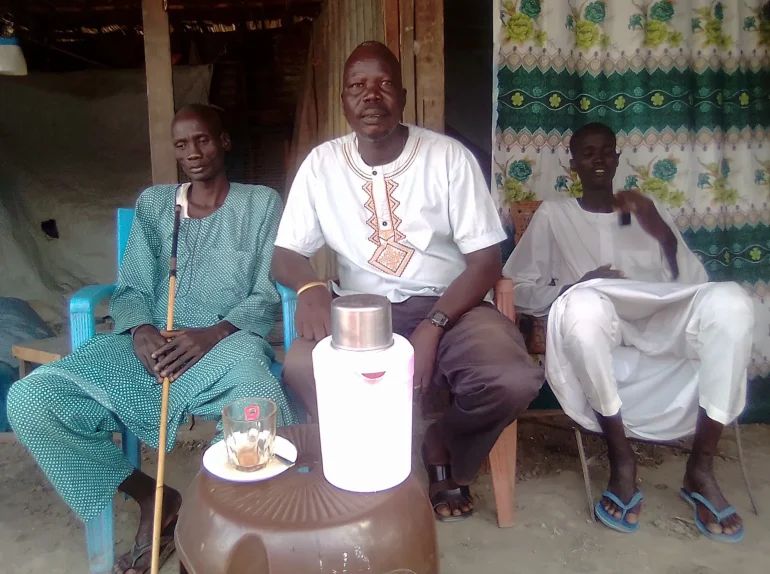Tea-taking in groups has become a tradition in major cities across South Sudan, including the capital, Juba. This has been especially prevalent among able-bodied youths with the ability to secure employment and contribute to the economic development of the country.
Observably, it is in the early hours of the morning when smartly-dressed individuals leave their homes just to meet their peers at a favourite tea stall. It is here that the sunset finds them; they walk back home. The habit is recurrent.
In Unity State’s capital Bentiu, the situation is not exceptional as it is in Rubkona town. The phenomenon also cascaded to IDP camps.
So, what are the motivating factors behind the youths spending their precious time at tea places from morning to evening hours with little to no economic gains?
In a series of interviews with the Juba Echo, a group of youths from Bentiu defended their urge to hang out at tea places.
Mr Tony Gattuor Koang, a 36-years old man from Bentiu IDP camp who spends most of his time at tea places from morning to dawn, said it is a better alternative to alcohol pubs. According to Gattuor, being at tea places also presents an opportunity to network.
“I spend most of my time at tea-taking places while waiting for any opportunity to come across. But if I spend most of my time in alcohol grouping places, someone would not call me to do some casual work, because they will definitely know that a drunkard person cannot do the work in the way they expect,” he said.
Gattuor revealed that the convergence of youths at tea places is also motivated by the high rate of employment among young people in the country. According to the United Nations, the youths constitute 70% of the total population in South Sudan but a sizeable number of them are unemployed.
Public sphere
In 1991, German philosopher Jürgen Habermas coined the concept of ‘Public Sphere’. He defined the theory as a domain of social life where public opinion can be formed.
Habermas declared several aspects vital for the public sphere. Mainly it is open to all citizens and constituted in every conversation in which individuals come together to form a public.
The citizen, he argued, plays the role of a private person who is not acting on behalf of a business or private interests but as one who is dealing with matters of general interest in order to form a public sphere. There is no intimidating force behind the public sphere but its citizens assemble and unite freely to express their opinions.
Today, this concept remains applicable in the South Sudanese context as seen from group tea-taking among youths.
Juba Echo established that taking tea among youths scales beyond the aforementioned factors. They also use these places to discuss national current affairs.
Paulino Makany Reat, a 56-year-old man who also spends most of his time at tea places in the sector-two market in Bentiu IDP camp said sitting at tea stalls promotes peace, unity, and social wellbeing.
“Tea places are waiting points for employment opportunities. So, I spend most of my time in the market, especially in tea grouping places and I receive information about what happened in South Sudan. I sometimes receive calls for casual work, but if I spend my time in a bar who will call me?” he asked.
Before the floods, there were only a few people in tea making places, especially in Bentiu IDP camp and Rubkona town. Many people spent their time in bushes collecting firewood and burning charcoal. The catastrophic flood jeopardized these activities.
Matai Koang Thuok, another tea-taking youth said he used his time at tea stalls to solicit business ideas. This, he said, has helped him establish a shop through which he is generating some income.
“Tea grouping places give us clues of what to do. I am a businessman and by then I was among those who spend their time at tea places from morning to evening hours. I have my own shop now, but if I spent the most time in alcohol grouping places, I would be a beggar,” Thuok said.










